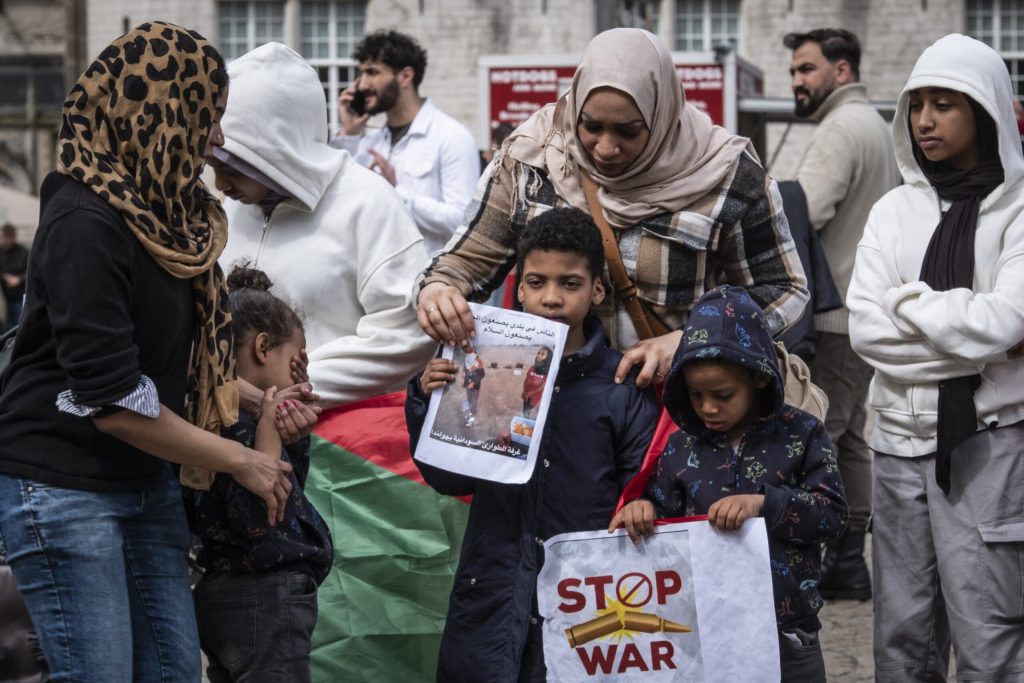Ahmed al-Obeid, a vegetable seller in a crowded market in central Sudan, dusts off his wooden stand and meticulously arranges fresh cucumbers and tomatoes in tidy piles as customers return with caution.
Just a few weeks ago, this market in the central Sudanese city of Wad Madani was mostly abandoned. Traders closed their businesses due to fear of the city’s paramilitaries.
Now, voices can be heard negotiating over fresh fruit as the city slowly returns to life after the army regained it from its rival Rapid Support Forces (RSF) last month.
“We are feeling safe again,” Obeid stated.

Credit: Dingena Mol / ANP MAG / ANP via AFP)
“People are buying and selling like old times,” he told AFP as he adjusted a pile of onions.
Sudan has been at war since April 2023, with army head Abdel Fattah al-Burhan’s soldiers pitted against his former deputy Mohammed Hamdan Daglo, who controls the RSF.
This month, United Nations Secretary-General Antonio Guterres declared “an unprecedented humanitarian crisis” in Africa, while the US sanctioned both Burhan and Daglo for violations.
Wad Madani, the capital of pre-war breadbasket Al-Jazira state, became a battleground when RSF forces invaded in December 2023, driving hundreds of thousands to evacuate the city and Al-Jazira.
However, signs of revival in the city are visible and restricted.
Buildings display war-related scars. Blackened walls and masses of rubble serve as frequent reminders of the city’s demise.
Fire destroyed shopfronts, restaurants, and other enterprises.
Expectant mums and their relatives wait in a maternity ward at the city’s main hospital, while nurses in white scrubs scurry along the halls to see patients.
“Medicine is available.” Life is finally returning to normal. “Thank God, everything has changed,” Rehab Moussa, a patient undergoing care, told AFP.
However, obstetrics and gynaecology specialist Khalid Mohammed stated that, while the hospital is gradually recovering, there are still significant staffing, medication, and equipment shortages.
“Our surgical supplies, including sutures, are nearly depleted, and we desperately need more anaesthesia equipment,” Mohammed told AFP between surgeries.


